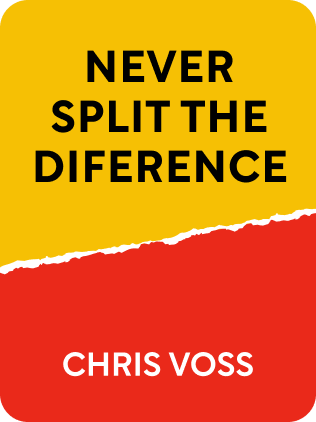

This article is an excerpt from the Shortform book guide to "Never Split the Difference" by Chris Voss and Tahl Raz. Shortform has the world's best summaries and analyses of books you should be reading.
Like this article? Sign up for a free trial here .
What is the role of mirroring in a negotiation? How can it help you build trust and connect with your counterpart?
Mirroring in a negotiation is one of the most effective psychological tactics. Essentially, it’s imitation and repetition. You repeat the last three words that the person has said in your next sentence.
Read more about how to use mirroring in a negotiation.
Mirroring and Negotiation
In a negotiation, mirroring helps build rapport with your counterpart by mimicking their word choice. Sounds simple, but there’s profound psychological meaning behind it. Mirroring helps put your negotiation counterpart at ease and make them feel like they’re talking to a trusted friend, even a confidante, rather than an opponent.
Human beings are drawn to what’s similar and are distrustful of that which seems alien or different. By imitating their speech patterns, you’re signaling to the other person not only that you’re hearing them, but also that you’re like them.
This is something we see every day: Think of couples who walk in sync with each other in the park or friends who imitate each other’s body language during a conversation.
How to Mirror
Ultimately, mirroring allows you to confront without being confrontational and disagree without being disagreeable. Here’s how you do it.
- Use your Late-Night DJ Voice to put them at ease.
- Start with “I’m sorry.”
- Repeat the last three words.
- Go silent.
Here’s how mirroring might work in an everyday scenario.
- Colleague 1: “I’m so overwhelmed at work today.”
- Colleague 2: “I’m sorry you’re having a bad time at work today.”
- (Pause)
- Colleague 2: “What can I do to help you feel less overwhelmed?”
Those magical three words make a huge difference in how you sound. The other person feels more heard and thus feels safe.

———End of Preview———
Like what you just read? Read the rest of the world's best book summary and analysis of Chris Voss and Tahl Raz's "Never Split the Difference" at Shortform .
Here's what you'll find in our full Never Split the Difference summary :
- Lessons learned from years as an FBI hostage negotiator
- Why negotiation is about emotional appeals, not rational ones
- The 5 methods for tactical empathy, which gets you what you want by focusing on the other person's feelings






